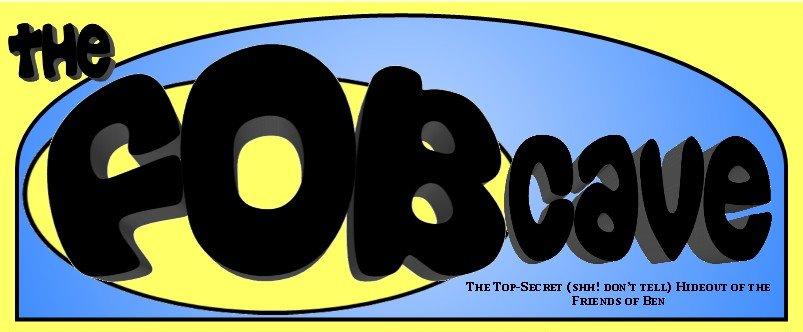A note on aboutness: It is about me.
A note on copyright: I suspect that reprinting an entire chapter of a novel on my blog does not fall under fair use. I hope Mr. Mayer will forgive me.
A note on objectionable content: The following passage contains at least one crude metaphor and at least two offensive names of planets.
A note on spoilers: If you plan on reading Superfolks and don't want to ruin the mystery of the plot, you may want to stop reading now. By which I mean...
now.
A note on fictional context: Superfolks, as I've mentioned before, is about David Brinkley, who was once the world's greatest superhero, but has now been retired for the past eight years and living a suburban life with his currently-pregnant wife and their two children. Though his powers have been waning for years, Brinkley goes back into action to combat riots and crime sprees that prove to be part of a larger conspiracy. This conspiracy, as it turns out, stretches back over a decade and its target is Brinkley himself: Brinkley discovers that the reason his powers have faded is that his enemies have managed to lace the infrastructure of modern civilization--the water in our faucets, the air in our air conditioners, the metal that holds up our buildings--with Cronkite, the one substance that can kill him. Even without his powers, though, he manages to make it out to space, where, free of the deadly Cronkite, he feels his superhuman strength return.
A note on personal context: I read this chapter about a month ago, after I'd learned that the Cronkite that had been slowly killing me for years was inseparable from the planet I'd been living on, and I'd managed to escape that planet's gravitational pull. Now I pondered excitedly the universe of opportunity that lay before me. Like Brinkley, though, I now hovered in space above Earth, an umbilical cord holding me in place, awaiting a sign while aware that none would come, knowing I couldn't hover in place much longer.
The smile was gone. Brinkley was alone in space. More alone than he had ever been.
He looked down at Earth, glowing like a blue-green marble far below him. The familiar emerald and turquoise swirls were as inviting as a freshly made bed. He wanted nothing more than to return there; his home. To sleep a good, long sleep; without dreams.
Tears began to well behind his eyes. It was not fitting for a superman to cry. But there it was. The planet Earth below a blue-green dollop of poison, infested with Cronkite; for which there was no antidote. If he returned there, it was unlikely he could ever again escape its atmosphere. He would be weak, barely able to fly. And would grow weaker day by day, month by month; until in a year, or five, or ten--there was no way to say exactly--he would die.
He pulled off his mask, to wipe away tears that had filtered beneath it. And put it on again. Pamela was there on Earth; and Allison; and Jennifer. Perhaps even a new baby now. Would he ever see it? And how could he explain?
Earth was his home, the only home he had known. Chosen for him by his parents, Archie and Edith, in the last days of Cronk. Chosen not even by them, but by higher powers; by the Lord Gods Nietzsche and Namath, who guided their hand. He had come to feel almost more Earthling than Cronker; albeit a bit special.
And now?
The choices were spread before him, invitingly, like the spread legs of beauties; out there, in the distant galaxies. The six other planets that harbored human life. He could take up residence on any of them, and resume his role as a superhero, unhindered by Cronkite, cheered and honored by the populace. He could start a new life, a new family. He could live through eternity, never aging, doing his good works.
He could go to the planet Nudj, land of the long-stemmed rain. Or Bazoom, where strange myths grew on trees. Or Wop, or Kike, or Nigger, or Elvis.
Or he didn't have to commit himself to any one. He could travel among them, stopping now here, now there--an itinerant hero, beloved throughout the universe. A girl in every port. It wouldn't be a bad life. Battling monsters, subduing criminals--the life he had been created for. Maybe he would take up the guitar.
There was no other choice. That's what he must do.
And yet, down on Earth, there was Pamela. Allison. Jennifer.
They were his. They needed him.
It's not so, he told himself. Suppose he had died during this long night of combat? Life would go on for them. Pamela would marry again. The children would grow, would become independent. It might even be better for them.
. . . While far out in the universe, their father would become a legend, his name synonymous with all that is good and brave and true . . .
There was no other choice. Here from the perspective of the cosmos he could face without flinching the accumulated sadness of his recent life on Earth. The times each day when there would be a weight in his chest that would move up back of his eyes, until he wanted to lie down in private and cry himself to sleep, for no reason at all. That was the hell of it. For no reason at all. He would look around and see a refrigerator bulging with food, a wife he loved who loved him in return, two little girls growing up bright and true, a job he could keep for the rest of his life if he wanted, that would take care of all the bills--he would see all this and still he would want to cry; would awaken in the middle of the night sometimes and stare at the ceiling in the dark, at the ghostly circle of light cast by a street lamp, and he would recall the world-saving exploits of his youth as if they had been performed by a stranger. He knew he could not come close to performing them now, and would question whether he ever really had. Either way his wish would be the same. He would wish he could fall asleep again and never awaken.
Each time, of course, he would not fall asleep till the gray of dawn burned out the lamplit circle. Then he would be awakened by Pamela and the children stirring. Light would be knifing in beneath the shade, or a new winter snow would be falling, and his despair of the dark night would burrow deep beyond reach into his soul, whitewashed over by the mechanics of the day--till without warning in midafternoon at work it would peep out again like a gopher, and he would walk to the water fountain or down the hall until it passed.
Each time he would review the litany of his blessings. And each time the same answer screamed inside him: It was not enough.
But he didn't know what would be enough. What would satisfy him. What would fill the emptiness.
He had no complaints. Except . . . everything.
Sometimes he thought they should move from Middleville. He should quit his job, and they should go to Savannah, or Missoula, or Santa Fe. Someplace with a pretty name and a pretty view, where the beauty of nature would swallow up human grief, and paint it o'er with unity, oneness, peace.
Other times he knew it would do no good. He was a Cronker amid Earthlings, and always would be. No one would ever know him. He would never know another person. He was an alien, alone in the universe. It was his fate. Cursing it made his fate neither better nor worse.
Now that he knew the cause of his physical weakness--the spread of Cronkite through the arteries of civilization--he knew that moving to another town, another country, would make little real difference. Cronkite was everywhere. The days when he could ever again have a sense of mission . . . down there . . . were gone.
And yet he was not streaking away from Earth, away into the stratosphere, into a new superlife. He was hovering in place; looking down at the emerald-turquoise swirls; wistfully.
He felt like a balloon, flying high, but still held down by a string; an umbilical cord; a cord he would have to cut.
The cord of love.
Above waited a physical--even a spiritual--rebirth. A challenging new career. A full new life.
Below was his family. Three human beings. Perhaps, at this moment, four.
He remembered a small incident from a picnic the previous summer. They had gone to Mystic Seaport to see the old sailing ships, and afterward he had tumbled in the grass with the girls while Pamela grilled hamburgers. An orange-breasted robin hopped near them, and then lit for a distant treetop. Jennifer, her small arms draped loosely around his neck, had said, "Daddy, wouldn't it be nice to fly like a bird?" He had replied that he imagined it would be very nice indeed. But that if people could fly, then birds would no longer be special.
He hadn't thought the answer would satisfy her; but it had.
Now, alone in space, hovering, he found himself waiting for a similar answer himself. Some sign. Some revelation. Knowing there would be none.
Finally, unable to hover in place any longer, he shed his paralysis with a wrenching motion. He kicked his legs, like a swimmer; and filled his lungs with the pure heady ozone of free will.
He thought Good Thoughts; a ritual; as if crossing himself.
And soared off into space.
Toward the North Star he streaked; and circled it, and continued on beyond. Through the Milky Way; out toward the scattered stars of the distant galaxies, twinkling pure silver in the blue of eternity.
He passed the golden door, through which he had blundered earlier. And continued soaring outward; till he neared the invisible wall.
He paused there, looking down, the entire universe spread before him, gems in a blue-gold setting, exquisite, perfect; creation of the Original Jeweler, the Master Craftsman who had preceded all the others; whom subsequent gods had not been able to match.
He filled himself with the beauty of it all, like a parched wanderer prone beside a stream. The symmetry, the precision. His blood felt purified, his limbs invigorated. The exhaustion of the night's battles had vanished. He felt as powerful as he had ever been.
He switched on his supersight. He scanned the distant universe, until his eyes picked out the tiny blue-green marble, adrift like all the others, yellow, or brown, or red; planets of every color.
Even now he smiled at the sight of it.
Slowly, he flew to the left. To the place in space where Cronk had once been. It was a vacuum now. A black hole. He hovered there, solemn. As if he were visiting a grave. For one last time.
Then he flew on, without tears.
Down and down he flew; his eyes not roaming now; looking neither left nor right; determined not to see the myriad suns, the stars, rushing by. His eyes fixed, unwavering, on his destination. On the blue-green marble growing ever larger below him.





2 comments:
.
Consider it not read.
I didn't read it but just wanted to thank you for the warning: objectionable content.
Perhaps you could start 'rating' your blog posts. I generally enjoy your writing very much, so don't want to stop reading your blog, but several times have read something I wished I hadn't read. (And I think there are a couple others who feel the same way. :)
f=family related
g=general
c=controversial
O=objectionable content
etc. . .
Post a Comment